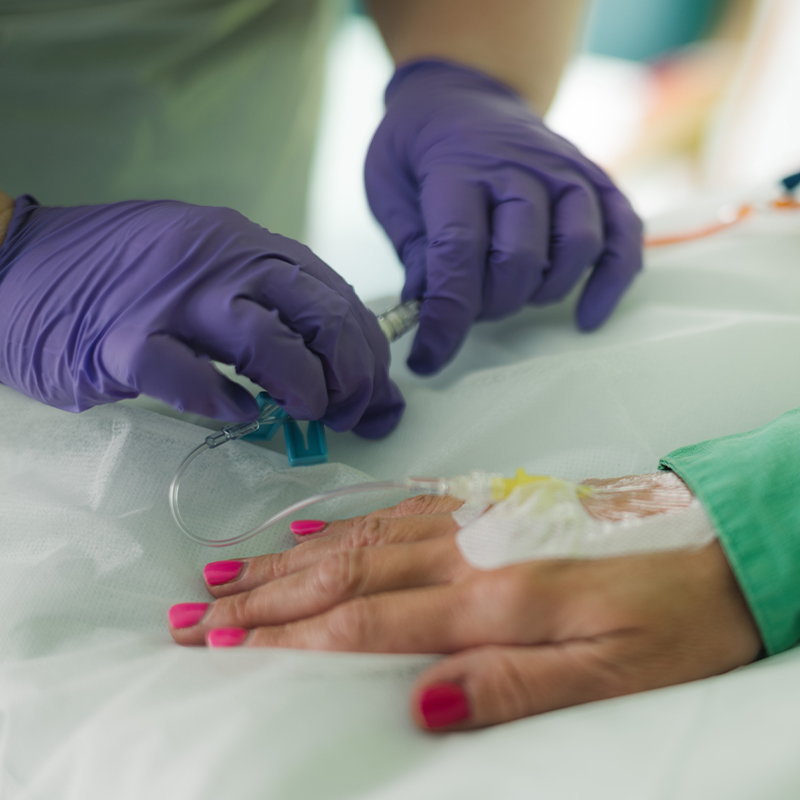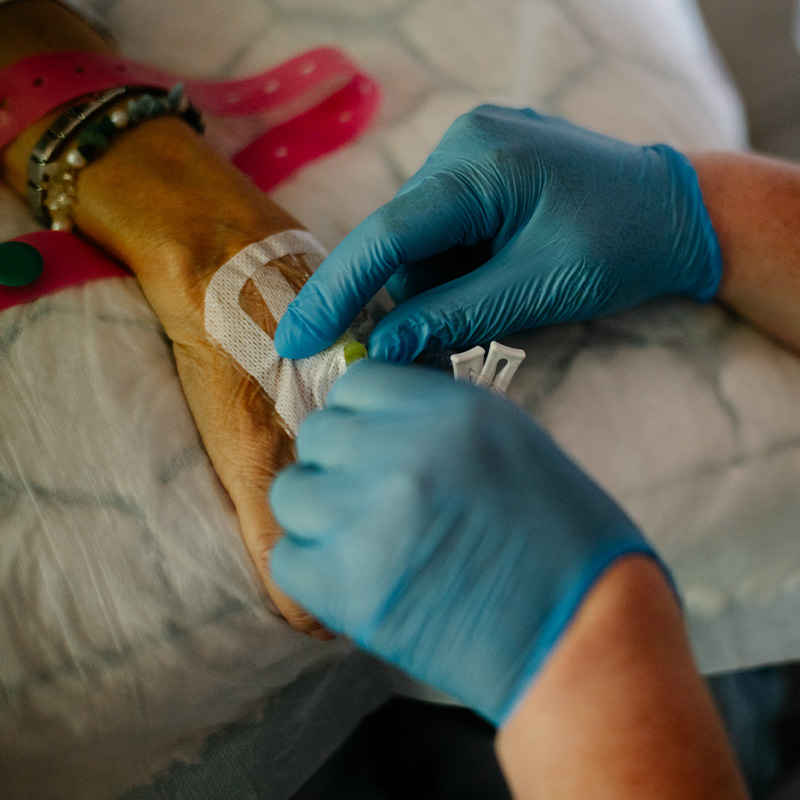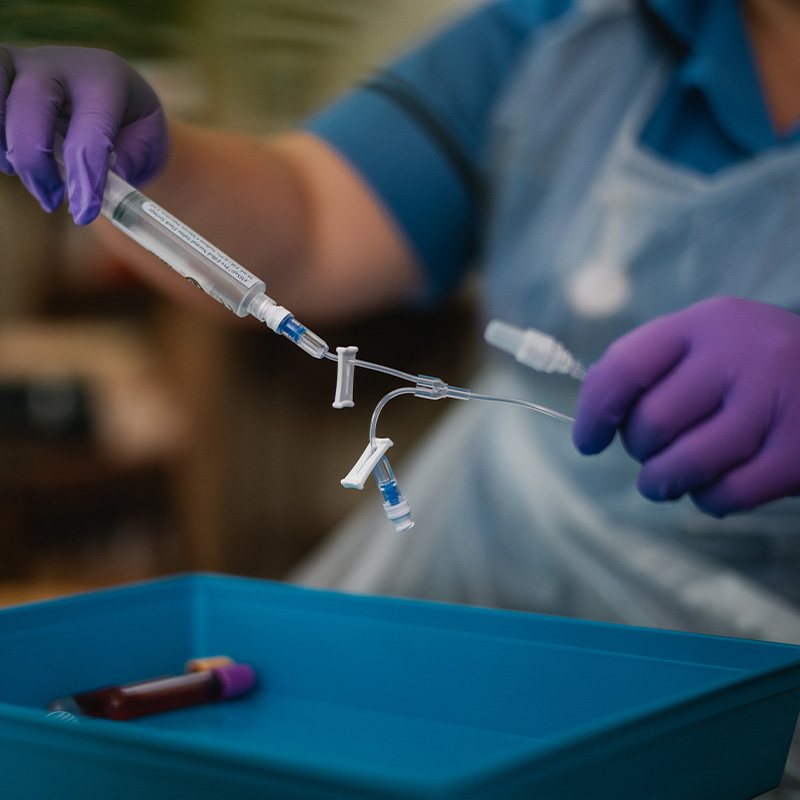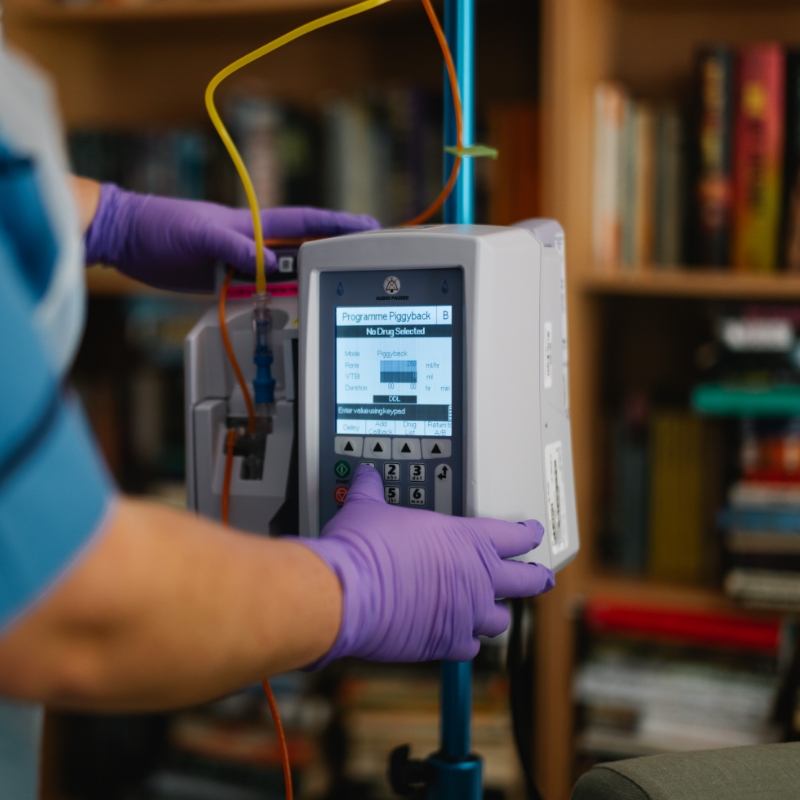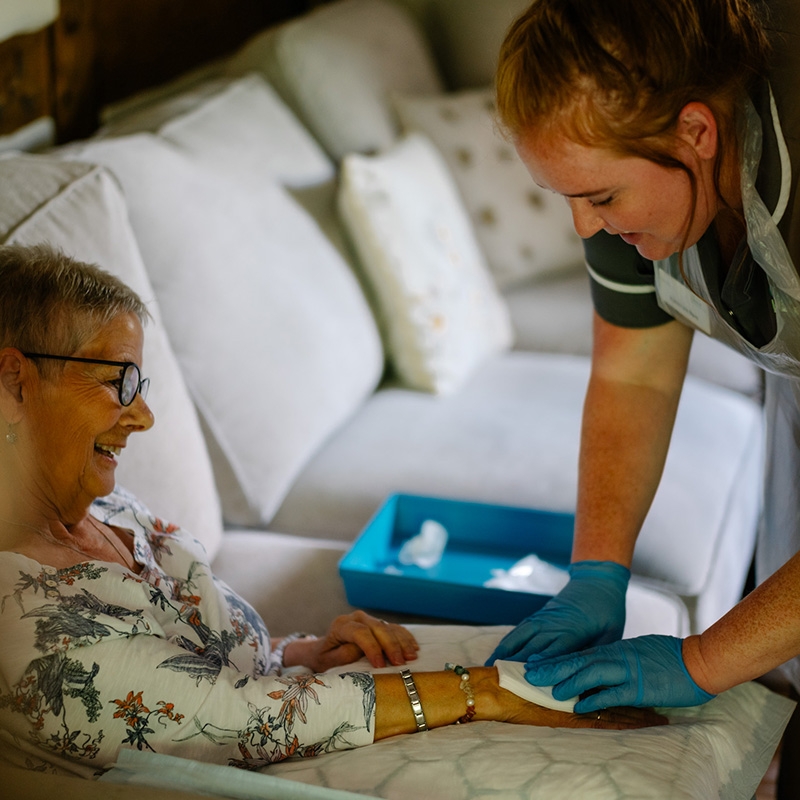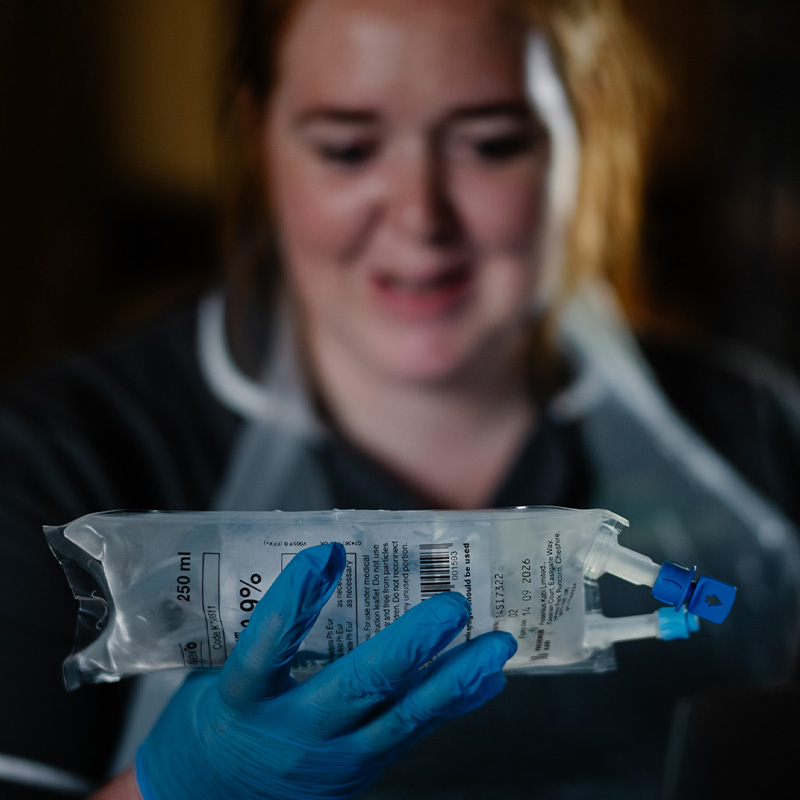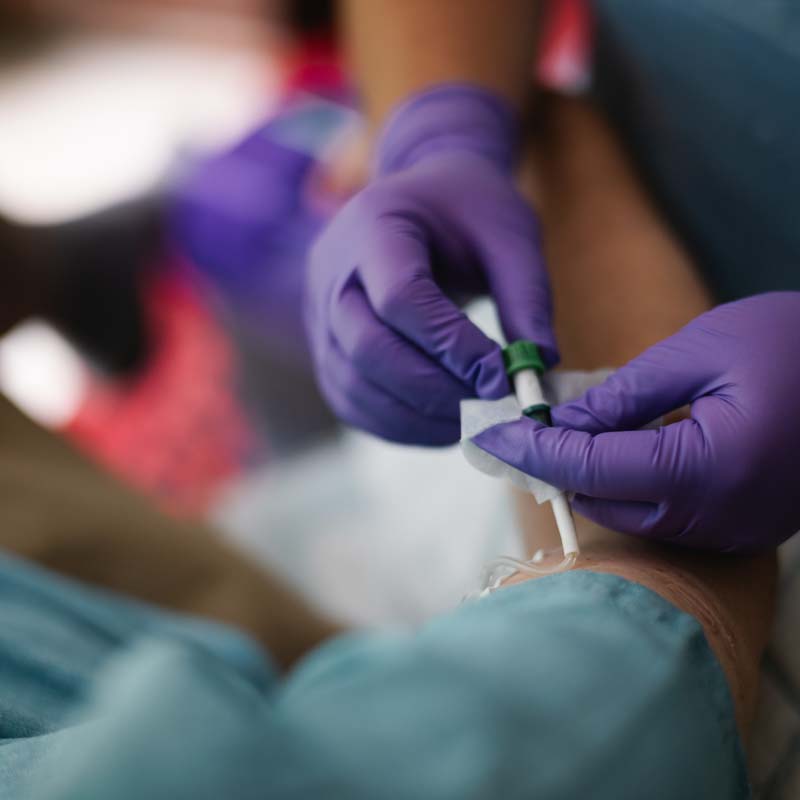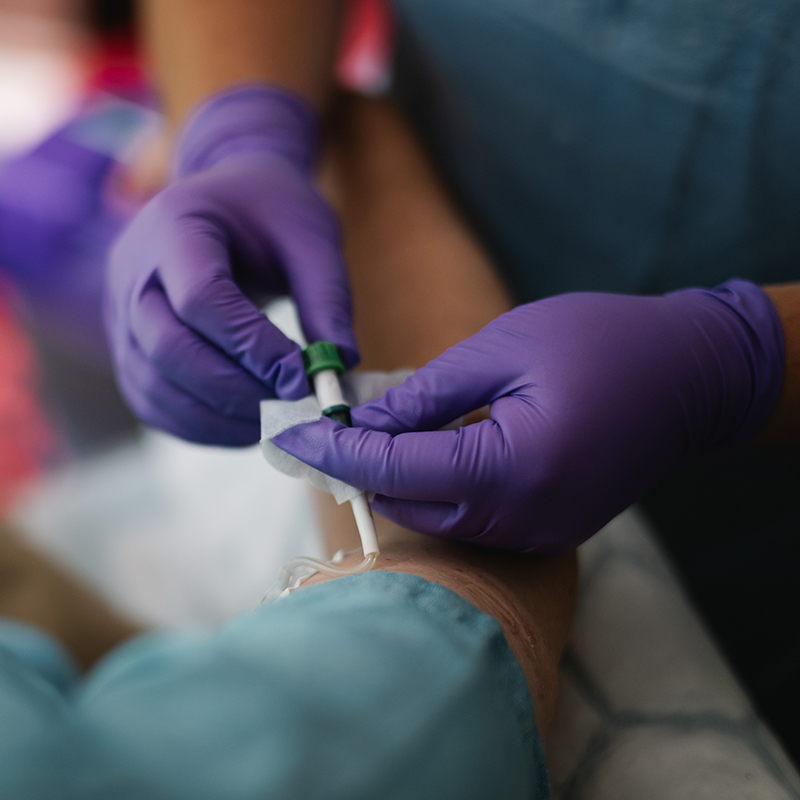Understanding breast cancer treatment
With so much information to absorb, and decisions to make, a breast cancer diagnosis can be overwhelming. Rest assured, you’re not alone, and there are many options for managing the condition.
Modern breast cancer treatment has evolved significantly, offering more approaches that can be tailored to your needs, whilst helping you maintain quality of life.
Our guide is here to help you understand private breast cancer treatment and the main treatment options available
Understanding your breast cancer diagnosis
The type of breast cancer you have significantly influences your treatment options. Your healthcare team will also examine whether cancer has spread to lymph nodes, particularly the nearby lymph nodes in your armpit area.
Many breast cancers are hormone receptor positive, meaning they have estrogen receptors that allow hormones to fuel their growth. These cancers often respond well to hormone therapy treatments that block or reduce hormone levels in your body.
Some breast cancers produce too much of a protein called HER2, making them HER2 positive. These cancers can be effectively treated with targeted drugs designed specifically to attack cancer cells with this characteristic.
The breast cancer stages system helps your medical team understand how far the cancer has progressed.
Surgery: The foundation of breast cancer treatment
Surgery remains the primary treatment for most people diagnosed with breast cancer. The type of surgery your surgeon recommends depends on the size and location of your tumour.
Chemotherapy: targeting cancer cells throughout your body
Chemotherapy uses powerful cancer drugs to attack cancer cells throughout your body. It’s particularly effective against aggressive tumours or when there’s concern that cancer cells may have spread.
Hormone therapy: Blocking fuel for hormone-sensitive cancers
Hormone therapy represents one of the most effective treatments for hormone receptor-positive breast cancer. This approach works by either blocking hormone receptors on cancer cells or reducing the amount of hormones your body produces.
How hormone therapy works
Many breast cancers depend on estrogen and progesterone to grow and multiply. Hormone therapy disrupts this process, essentially starving hormone-sensitive cancer cells of the fuel they need to survive and reproduce.
Types of Hormonal Therapy
Several different approaches to hormone therapy exist, each with the same goal of blocking hormone stimulation of cancer cells.
Tamoxifen blocks estrogen receptors on cancer cells, preventing the hormone from stimulating the growth of cancer. Pre-menopausal and post-menopausal women can use this medication, and it is typically taken for five to ten years.
Aromatase inhibitors work by reducing the amount of estrogen your body produces. These medications are particularly effective for post-menopausal women, to block the enzyme that converts other hormones into estrogen.
Ovarian suppression therapy For pre-menopausal women this may be recommended alongside other hormone treatments. This approach temporarily stops your ovaries from producing estrogen, creating a post-menopausal hormonal environment that makes other hormone therapies more effective.
Long-term Benefits of Hormone Therapy
Adjuvant hormone therapy provides long-lasting protection against cancer recurrence. Studies show that the protective effects continue even after you finish taking the medication, providing ongoing peace of mind as you move forward with your life.
Targeted therapy: Precision medicine for specific cancer types
Targeted drugs represent an advancement in breast cancer treatment, designed to attack cancer cells based on their specific molecular characteristics.
HER2 positive breast cancer Treatment
If your cancer is HER2 positive, meaning cancer cells produce too much HER2 protein, several targeted drugs can be used:
Trastuzumab was the first targeted therapy approved for HER2-positive breast cancer and remains a cornerstone of treatment.
Pertuzumab works alongside trastuzumab to provide even more effective treatment for HER2-positive cancers.
Newer targeted drugs continue to expand treatment options for HER2-positive breast cancer, including medications that can cross the blood-brain barrier.
CDK4/6 Inhibitors
For hormone receptor-positive, HER2-negative breast cancer, CDK4/6 inhibitors represent an important advancement in treatment options. These medications work by blocking proteins that help cancer cells divide and multiply.
Triple Negative Breast Cancer Treatment
PARP inhibitors can be effective for people with triple-negative breast cancer who have inherited BRCA gene mutations. These medications prevent cancer cells from repairing DNA damage, leading to cancer cell death.
Immunotherapy drugs help your immune system recognise and attack cancer cells. Some people with triple-negative breast cancer respond very well to these treatments, particularly when combined with chemotherapy.
Radiation therapy: Precise cancer cell elimination
High-energy beams target and kill cancer cells in specific areas of the body. This treatment plays a crucial role in reducing the risk of cancer coming back in the breast or nearby areas.
Advanced and metastatic breast cancer treatment
When breast cancer has spread to other parts of the body, it is called metastatic breast cancer, and treatment focuses on controlling the disease whilst maintaining quality of life.
Systemic treatment approaches
Metastatic breast cancer requires treatments that work throughout your body to control cancer in multiple locations.
Hormone therapy often remains an essential part of treatment for hormone receptor-positive metastatic breast cancer. Many people with advanced cancer can be effectively treated with hormone therapy alone or in combination with targeted drugs.
Chemotherapy may be recommended if your cancer is growing quickly or not responding to hormone treatments.
Managing symptoms and side effects
Your care team includes specialists in symptom management who can provide treatments and strategies to help you maintain your energy, appetite, and overall well-being.
Supportive care to help you feel your best throughout your treatment journey may include medications to strengthen bones, manage pain, or address other symptoms related to cancer, or its treatment.
Emotional and practical support
Counselling, support groups, and practical assistance can all play important roles in helping you cope with your condition. Many people with metastatic breast cancer continue to work, travel, and enjoy activities that are important to them.
Personalised treatment planning
Modern breast cancer treatment is personalisd, with your medical team considering numerous factors to create the most effective treatment plan for your specific situation.
Genomic testing for treatment decisions
Advanced testing of your cancer tissue can provide information about how likely your cancer is to come back and how well it might respond to different treatments.
Tests like Oncotype DX and MammaPrint can help your medical team determine whether chemotherapy is likely to benefit you.
Multidisciplinary Team Approach
Your breast cancer treatment involves a team of specialists working together to provide comprehensive care. This team typically includes surgeons, medical oncologists, radiation oncologists, nurses, and other specialists who contribute their expertise to your treatment plan.
Considering your personal preferences
Some people prioritise treatments with fewer side effects, even if they might be slightly less effective. Others prefer the most aggressive treatment approach available. Your medical team respects these preferences and collaborates with you to create a personalised plan that aligns with your priorities.
Treatment at home: Bringing cancer care to you
Receiving treatment for breast cancer at home, allows you to maintain your normal routine whilst receiving the same high-quality care you would receive in a hospital setting.
Supporting Your Treatment Journey
Breast cancer treatment involves more than just medical interventions. Comprehensive support addresses the physical, emotional, and practical challenges.
Managing treatment side effects
This includes medications to prevent or minimise nausea, strategies for managing fatigue, and treatments to address other symptoms as they arise.
Nutritional support helps maintain strength throughout treatment. Physical therapy and exercise programmes can help you maintain strength and mobility during treatment. Many people find that staying active, helps them feel better and recover more quickly.
Emotional and psychological support
Diagnosis and treatment can trigger a range of emotions. These feelings are completely normal and professional support is available to help you.
Counselling services, support groups, and peer support programmes connect you with others who understand what you’re going through. Many people find great comfort and practical advice from talking with others who have faced similar challenges.
Family and Caregiver Support
Support services extend to your loved ones, helping them understand your treatment and learn how they can best support you during this time. Family and caregiver support may include counselling services, educational materials, or even support groups specifically designed for caregivers.
We know the benefits of cancer care at home
Our specialist cancer services ensure private medically insured and self-paying patients who want an alternative to hospital can start their treatment faster. We consider all cancer treatments, including those not currently available in hospitals.

Looking for more information?
We’ve worked with thousands of patients, and we know you’ll have a lot of questions.
If you’re ready to talk to us to discuss your options, fill out the form below and we’ll be in touch quickly.
If your enquiry is urgent please call 0345 2636 123 (England and Wales) or 0345 2636 135 (Northern Ireland and Scotland).
Your guide to breast cancer treatment
A breast cancer diagnosis can be overwhelming. Rest assured, you’re not alone, and there are many options for managing the condition and tailoring treatment to suit your individual needs.
Our guide is here to help you understand private breast cancer treatment and the main treatment options available.
